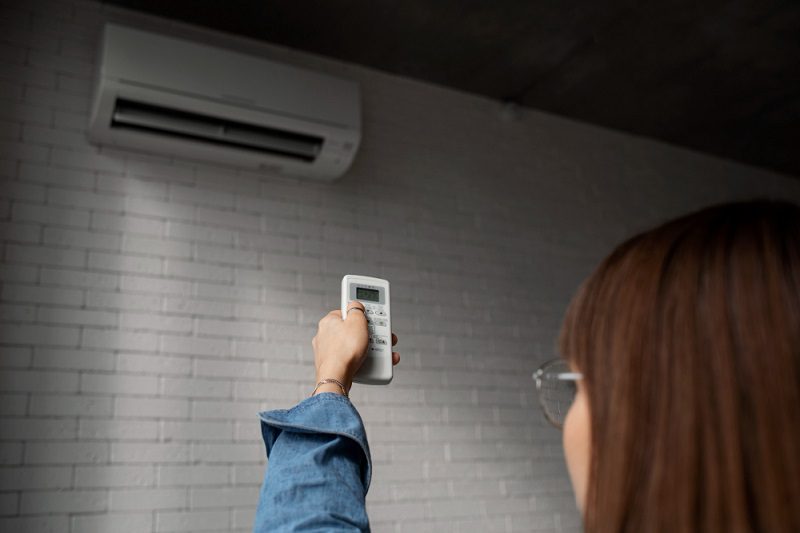When it comes to maintaining a comfortable living environment, your heating and cooling system plays a crucial role. But what happens when that system starts to show signs of wear and tear? How can you tell if it’s time for a repair, or if a simple maintenance task will suffice? In this ultimate guide to heating and cooling system repairs, we’ll explore the telltale signs that your HVAC system needs attention, the importance of regular maintenance, and the benefits of investing in energy-efficient upgrades.

Understanding Your Heating and Cooling System
Before delving into the signs that your heating and cooling system needs repair, it’s essential to understand the basics of how your HVAC system works. HVAC stands for heating, ventilation, and air conditioning. It is a system designed to maintain the temperature and air quality in your home. The main components of an HVAC system include:
– Furnace: Generates heat through combustion of fuel (natural gas, propane, or oil) or by electric resistance.
– Air conditioner: Removes heat from the air using a refrigeration cycle.
– Ductwork: Transports heated or cooled air throughout your home.
– Thermostat: Controls the temperature settings and regulates the operation of the heating and cooling system.
Common Signs Your HVAC System Needs Repair
Some common signs that your heating and cooling system may need repair include:
– Unusual noises: If your HVAC system is making strange noises, such as banging, squealing, or grinding, it’s a clear indication that something is wrong. These sounds may be caused by loose or damaged components and should be addressed by a professional.
– Reduced airflow: If you notice that the air coming from your vents is weak or inconsistent, your system may be experiencing issues with the blower motor, air filter, or ductwork.
– Uneven temperatures: If some rooms in your home are too hot or too cold, it could be a sign of problems with your thermostat or issues with your ductwork, such as leaks or blockages.
– Increased energy bills: An unexpected spike in your energy bills could indicate that your heating and cooling system is working harder than it should be due to a malfunction or inefficiency.
– Frequent cycling: If your system is constantly turning on and off, it may be struggling to maintain the desired temperature. This could be due to a faulty thermostat, low refrigerant levels, or an improperly sized system.
The Importance of Regular Maintenance
Regular maintenance of your heating and cooling system is crucial for several reasons:
– Improved efficiency: A well-maintained system operates more efficiently, using less energy and saving you money on your utility bills.
– Extended lifespan: Regular maintenance can help prolong the life of your HVAC system by preventing premature wear and tear on components.
– Enhanced performance: Keeping your system clean and well-tuned can improve its overall performance, ensuring consistent and comfortable temperatures throughout your home.
– Reduced repair costs: Catching small issues before they become major problems can save you money on costly repairs or system replacements.
Some routine maintenance tasks you can perform yourself include changing your air filter regularly, cleaning your outdoor AC unit, and checking your thermostat settings. However, it’s also important to schedule annual professional maintenance for a more thorough inspection and tune-up of your system.
Energy-Efficient Heating and Cooling System Upgrades
Investing in energy-efficient upgrades for your heating and cooling system can provide numerous benefits, including:
– Lower energy bills: Energy-efficient systems use less energy, resulting in lower utility bills.
– Enhanced comfort: High-efficiency systems often provide more consistent temperatures and improved indoor air quality.
– Environmental benefits: By using less energy, you’re reducing your carbon footprint and contributing to a healthier planet.
– Potential rebates and incentives: Many utility companies and government programs offer rebates and incentives for upgrading to energy-efficient systems.
Some energy-efficient upgrades to consider include installing a programmable thermostat, upgrading to a high-efficiency furnace or air conditioner, and sealing and insulating your ductwork.
When to Call a Professional for HVAC Repair
While some minor maintenance tasks can be performed by homeowners, it’s essential to know when to call a professional for heating and cooling system repairs. If you’re experiencing any of the following issues, it’s time to call in the experts:
– Unusual noises or smells coming from your system
– Persistent or worsening performance issues, such as reduced airflow or uneven temperatures
– Frequent system cycling or system failure
– Water leaks or refrigerant leaks
– Any electrical issues, such as tripped breakers or visible wiring damage
Attempting to repair your HVAC system without proper training and experience can be dangerous and may result in further damage to your system.
Conclusion
Your heating and cooling system is a critical component of your home, responsible for maintaining a comfortable and healthy living environment. By understanding the common signs of HVAC issues, the importance of regular maintenance, and the benefits of energy-efficient upgrades, you can ensure that your system remains in top condition for years to come. And when it’s time to call in the professionals for repairs, you’ll have the peace of mind knowing that you’re making the best decision for your home and your family.
